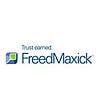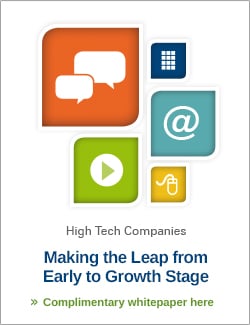
Freed Maxick Tax Team
Find Advisors That Marry Integrity with Capability
 As your company makes the transition for early stage to growth, it only gets more confusing, complex and fraught with possibilities of missteps that could bring it to a crashing halt. That’s why it’s important for your management team to surround itself with trusted advisors that can help you make the leap.
As your company makes the transition for early stage to growth, it only gets more confusing, complex and fraught with possibilities of missteps that could bring it to a crashing halt. That’s why it’s important for your management team to surround itself with trusted advisors that can help you make the leap.
The type of markets you serve, your business goals, and the skill set of your management team will all help determine what types of advisors are necessary. It’s likely, however, that you’ll need a strong relationship with an accountant, a lawyer, a banker, a marketing consultant, and an insurance broker at a minimum. As your business grows, your cadre of trusted advisors will also grow and include technical experts and other specialized professionals.
The Characteristics of a Trusted Advisor
 What should you look for in a trusted advisor, and what roles should they play in your transition strategies?
What should you look for in a trusted advisor, and what roles should they play in your transition strategies?
Trusted advisors need to be able to earn the trust of company management and build relationships. They need to be credible, reliable and always have the interests of your company at heart. But they also have to be honest and challenging when necessary, especially when it comes to separating emotion from business realities.
According to Searl Street Consulting (www.searlstreet.com.au) an effective Trusted Advisor will have the following 10 characteristics:
1. Have a predilection to focus on the client, rather than themselves. They have:
- enough self-confidence to listen without pre-judging
- enough curiosity to inquire without supposing an answer
- willingness to see the clients co-equal in a joint journey
- enough ego strength to subordinate their own ego
2. Focus on the client as an individual, not as a person fulfilling a role
3. Believe that a continued focus on problem definition and resolution is more important than technical or content mastery
4. Show a strong “competitive” drive aimed not at competitors, but with constantly finding new ways to be of greater service to the client
5. Consistently focus on doing the next right thing, rather than on aiming for specific outcomes
6. Are motivated more by an internalized drive to do the right thing than by their own organization’s rewards or dynamics
7. View methodologies, models, techniques and business processes as means to an end. They are useful if they work, and are to be discarded if they don’t, the test as effectiveness for this client
8. Believe that success in client relationships is tied to the accumulation of quality experiences. As a result, they seek out (rather than avoid) client-contact experiences, and take personal risks with clients rather than avoid them
9. Believe that both selling and serving are aspects of professionalism. Both are about providing to clients that you are dedicated to helping them with their issues
10. Believe that there is a distinction between a business life and a private life, but that both lives are very personal. They recognize that refined skills in dealing with people are critical in business and personal life; the two worlds are often work alike that they are different, and for some, they overlap to an extraordinary event
From our experience in working with hundreds of early stage companies looking to make the leap to the growth stage, having the right team of advisors is a critical and fundamental element. Freed Maxick CPAs would welcome the opportunity to discuss how we might be a trusted advisor to your high tech company.
Please call us to talk with one of our CPAs or consultants about our accounting, tax and advisory services. Call us at 716.847.2651, or contact us here.